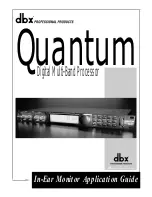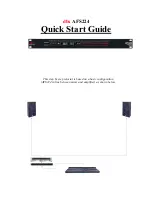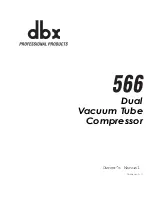
26
J)
Low Frequency Filter Test
Lift one side of C18. Turn on Generator output A, adjust frequency for 1kHz, and adjust
oscillator level to obtain 4V P/P at the input to the filter, pin 1 of J3. Move probe to junction
of R63, R64, and C37.
Refer to Figure 1 above. Note the straight line from 20Hz to 20kHz at 4 volts. This repre-
sents the 4V P/P input signal that was just set up on pin 1 of J3. The curve below this line
represents the transfer function of the first filter section (R63, R64, and C37) when this
section is operating properly.
Sweep the oscillator frequency and note if the readings are reasonably close to the values
indicated in the plot above. (+/– 15%). For example, with a filter that operates normally, the
output will be 2.3V P/P at 20Hz, 2V P/P at 500Hz, 850mV P/P at 2kHz, 300mV P/P at 6kHz
and 90mV P/P at 20kHz.
The first section is a low-pass filter with the half power point at 800Hz. If the response is
incorrect check the values of R63, R64 and C37. If these values are OK, check the values
of C35 - C37, R59, and R60.
After obtaining proper response proceed to following section.
Summary of Contents for EON15
Page 23: ...High Frequency Response EON Power15 and EON15P 1 230 33...
Page 24: ...Low Frequency Response EON Power15 and EON15P 1 230 34...
Page 30: ...Low Frequency Response EON PowerSub 40...
Page 35: ...High Frequency Response EON Power10 45...
















































